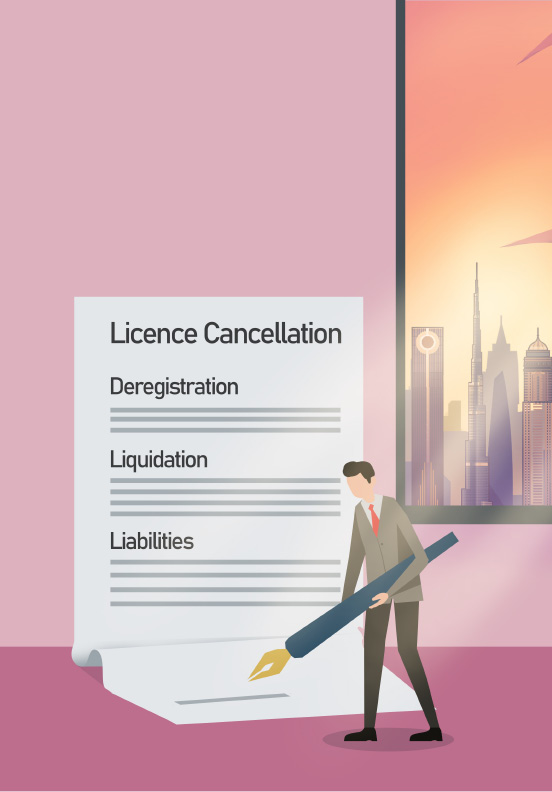- Arbitration
- Banking & Finance
- Capital Markets
- Commercial
- Competition
- Construction & Infrastructure
- Corporate / Mergers & Acquisitions
- Corporate Services
- Corporate Structuring
- Digital & Data
- Dispute Resolution
- Employment & Incentives
- Family Business & Private Wealth
- Innovation, Patents & Industrial Property (3IP)
- Insurance
Find a Lawyer
Book an appointment with us, or search the directory to find the right lawyer for you directly through the app.
Find out more
Level Up: Unlocking Financial Potential In The Middle East
Welcome to this edition of Law Update, where we focus on the ever-evolving landscape of financial services regulation across the region. As the financial markets in the region continue to grow and diversify, this issue provides timely insights into the key regulatory developments shaping banking, investment, insolvency, and emerging technologies.


2025 is set to be a game-changer for the MENA region, with legal and regulatory shifts from 2024 continuing to reshape its economic landscape. Saudi Arabia, the UAE, Egypt, Iraq, Qatar, and Bahrain are all implementing groundbreaking reforms in sustainable financing, investment laws, labor regulations, and dispute resolution. As the region positions itself for deeper global integration, businesses must adapt to a rapidly evolving legal environment.
Our Eyes on 2025 publication provides essential insights and practical guidance on the key legal updates shaping the year ahead—equipping you with the knowledge to stay ahead in this dynamic market.
The leading law firm in the Middle East & North Africa region.
A complete spectrum of legal services across jurisdictions in the Middle East & North Africa.
-
Practices
- All Practices
- Banking & Finance
- Capital Markets
- Commercial
- Competition
- Construction & Infrastructure
- Corporate / Mergers & Acquisitions
- Corporate Services
- Corporate Structuring
-
Sectors
-
Country Groups
-
Client Solutions
Today's news and tomorrow's trends from around the region.
17 offices across the Middle East & North Africa.
Our Services
 Back
Back
-
Practices
- All Practices
- Banking & Finance
- Capital Markets
- Commercial
- Competition
- Construction & Infrastructure
- Corporate / Mergers & Acquisitions
- Corporate Services
- Corporate Structuring
- Digital & Data
- Dispute Resolution
- Employment & Incentives
- Family Business & Private Wealth
- Innovation, Patents & Industrial Property (3IP)
- Insurance
- Intellectual Property
- Legislative Drafting
- Private Client Services
- Private Equity
- Private Notary
- Projects
- Real Estate
- Regulatory
- Tax
- Turnaround, Restructuring & Insolvency
- White Collar Crime & Investigations
-
Sectors
-
Country Groups
-
Client Solutions

- Law Firm
- /
- Insights
- /
- Law Update
- /
- May 2020
- /
- Company deregistration in the UAE from a legal and practical perspective
Company deregistration in the UAE from a legal and practical perspective
Ali Bachrouch - Partner, Head of Corporate Structuring - Sharjah and Ras Al Khaimah - Corporate Structuring
Odai Mismar - Senior Associate - Corporate Structuring
Introduction
The company ‘deregistration’ or in other words the ‘licence cancellation’, is a common concept introduced by various licensing authorities in the UAE, for closing down limited liability companies. Notwithstanding the argument about the definition and legal basis of the concept, this article will focus on the implementation of ‘deregistration’, with special consideration given to the major liabilities associated with the transaction. The first section of this article will tackle the practical application of the concept, and the second section will focus on the liability and other legal implications.
Practical application
This section will discuss the main requirements of the deregistration, and the main difference between deregistration and the concept of liquidation.
Deregistration is not an established concept under a specific regulation in the UAE however, it is a practical procedure introduced by some of the concerned licensing authorities in the various Emirates, with the ultimate objective of cancelling a licence and closing down a company. The benefit of the deregistration derives from the fact that it is a quick process with less stringent requirements compared to the liquidation process which, in UAE law, is the normal and only way for closing down companies at most licensing authorities. Hence, it is important to distinguish between the liquidation and deregistration processes and understand the requirements of each process.
Deregistration
The requirements of deregistration are usually governed by the internal rules and guidance issued by the relevant licensing authorities. In general, the main requirements for deregistration are:
- resolution to be issued by the company approving the cancellation of the licence and closing it down;
- clearances will be required from the relevant authorities (i.e. tele-communication provider, SEWA, Emirates Post, etc) ; and
- cancellation of the Memorandum of Association.
Once the completed application (as detailed above) is submitted with the deregistration fees, the authority will issue a final certificate confirming the deregistration and cancellation of the licence of a company.
Liquidation
The concept of liquidation is well established in accordance with the provisions of the Federal Law No. 2 of 2015 on Commercial Companies (‘2015 Law’). Unless the Memorandum of Association or Articles of Association of the company specify special provisions or provisions contrary to the 2015 Law, the liquidation process should be executed in accordance with the default provisions as set out under the 2015 law.
Liquidation can be either voluntary or compulsory (through a court order). Voluntary liquidation is when the shareholders agree to liquidate the company and appoint a liquidator through a shareholders’ resolution. In the event there is a dispute between the shareholder(s) and the liquidation is requested by the shareholder(s) through the courts, the competent court shall select the method of liquidation to be used and formally appoint a liquidator. In any event, the task of the liquidator shall not be terminated by the death, declaration of bankruptcy, insolvency or interdiction ordered against the partners, even if the liquidator is appointed by the partners.
The main requirements for the liquidation process, (specifically voluntary liquidation), are:
- resolution to be issued by the company approving the liquidation of the company and the appointment of a liquidator;
- clearances will be required from the relevant authorities (i.e. telecommunication provider, SEWA, Emirates Post, etc.);
- advertisement or notice shall be published in two local daily newspapers (one of which issued in Arabic) for a period of least 45 days; and
- the appointed liquidator should prepare and submit a liquidation report to the relevant licensing authority.
Upon the completion of the liquidation process and submission of the liquidation report by the liquidator at the relevant licensing authority, the latter will issue a liquidation certificate announcing the completion of the liquidation and closure of the company.
Liability and other legal Implications
Practically speaking, and taking into consideration the above, a company can be deregistered without going through a liquidation process, and more specifically without appointing a liquidator who would be obliged to notify the creditors and prepare a liquidation report.
Dissolution and the appointment of a liquidator
The absence of a liquidator, and consequently the liquidation report in the deregistration process, raises the question of whether the appointment of a liquidator, and more generally the adoption of the dissolution and liquidation steps, will still be required even if the company is deregistered.
Pursuant to Article (308) of the 2015 law:
“The liquidation shall be conducted by one or more liquidators appointed by the partners or under a Decision by the General Assembly or any other similar body, provided that the liquidator is not an auditor of the company at the time being or has already audited its accounts within five years preceding the appointment“.
A question about the roles and liabilities of the mangers and shareholders of the company is also raised, as well as the role of the licensing authority and the extent of its intervention in the liquidation activities that can be initiated before or after the completion of the deregistration. It is worth mentioning that certain liquidation actions cannot be completed without the authority’s permission, for instance the publication in a newspaper, as the request for publication should be sent to the relevant newspaper via the concerned licensing authority.
Notification of the creditors of a company
During the liquidation process the liquidator should arrange for a publication as per Article (316) of 2015 law, which states the following:
“All the debts payable by the company shall become immediately outstanding upon its dissolution. The liquidator shall notify all the creditors by registered letters with acknowledgment of receipt of the commencement of the liquidation, inviting the creditors to present their claims. The notice shall be published in two local daily newspapers; one of them is issued in Arabic. In all events, the notice of liquidation shall include a period granted to the creditors for at least 45 days from the date of the notice to present their claims”.
Deregistration does not require the creditors to be notified, and hence a question may arise in relation to the liability of managers and shareholders towards the creditors of the company after deregistration. Therefore, the deregistration route should be followed with due caution, in order to avoid a situation where shareholders and mangers may remain liable to any creditor(s) or third party(ies).
Conclusion
The deregistration concept originated from general procedural practice adopted by various licensing authorities in the UAE.
The deregistration path can be understood as a route to facilitate the cancellation of a licence of a limited liability company and ensure its closure in the fastest way possible, leaving the decision about the dissolution and liquidation formalities to the shareholders to decide upon based on the circumstances of the company. However, special consideration should be given to the fulfilment of the notification and publication requirements during the transaction; otherwise the managers and shareholders of the company may remain liable for any (or all) debts related to the business.
For further information, please contact Ali Bachrouch (a.bachrouch@tamimi.com) or Odai Mismar (o.mismar@tamimi.com).
Stay updated
To learn more about our services and get the latest legal insights from across the Middle East and North Africa region, click on the link below.



